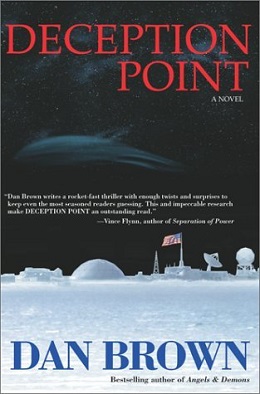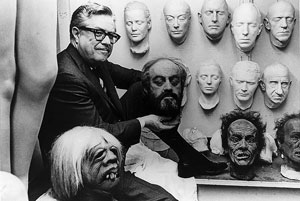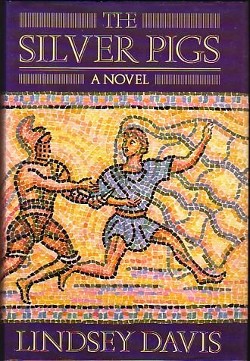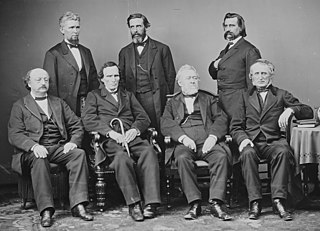
Hannibal Hamlin was an American attorney and politician who served as the 15th vice president of the United States from 1861 to 1865, during President Abraham Lincoln's first term. He was the first Republican vice president.

Abscam, sometimes written ABSCAM, was a Federal Bureau of Investigation sting operation in the late 1970s and early 1980s that led to the convictions of seven members from both chambers of the United States Congress and others for bribery and corruption. The two-year investigation initially targeted trafficking in stolen property and corruption of prominent business people, but later evolved into a corruption investigation. The FBI was aided by the United States Department of Justice and convict Mel Weinberg in videotaping politicians accepting bribes from a fictitious Arabian company in return for various political favors.

Thomas Joseph Pendergast, also known as T. J. Pendergast, was an American political boss who controlled Kansas City and Jackson County, Missouri, from 1925 to 1939.

Augustus Hill Garland was an American lawyer and Democratic politician from Arkansas, who initially opposed Arkansas' secession from the United States, but later served in both houses of the Congress of the Confederate States and the United States Senate, as well as becoming the 11th governor of Arkansas (1874–1877) and the 38th attorney general of the United States (1885–1889). He wrote several books.

The 1860 Republican National Convention was a presidential nominating convention that met May 16–18 in Chicago, Illinois. It was held to nominate the Republican Party's candidates for president and vice president in the 1860 election. The convention selected former representative Abraham Lincoln of Illinois for president and Senator Hannibal Hamlin of Maine for vice president.

Deception Point is a 2001 mystery-thriller novel by American author Dan Brown. It is Brown's third novel. It was published by Simon & Schuster.

Merrick Brian Garland is an American lawyer and jurist who serves as the 86th United States attorney general. He previously served as a circuit judge of the United States Court of Appeals for the District of Columbia Circuit from 1997 to 2021. In 2016, President Barack Obama nominated Garland to the U.S. Supreme Court, but the Republican-led U.S. Senate effectively blocked Garland's appointment.

William Julian Tuttle was an American make-up artist.

Augustus Emmet Maxwell was an American lawyer and politician. Maxwell served in a number of political positions in the State of Florida including as one of Florida's senators to the Confederate States Congress, Florida Secretary of State, and as Chief Justice of the Florida Supreme Court.

The Glass Key is a novel by American writer Dashiell Hammett. First published as a serial in Black Mask magazine in 1930, it then was collected in 1931. It tells the story of a gambler and racketeer, Ned Beaumont, whose devotion to Paul Madvig, a crooked political boss, leads him to investigate the murder of a local senator's son as a potential gang war brews. Hammett dedicated the novel to his onetime lover Nell Martin.
Operation Tennessee Waltz was a sting operation set up by federal and state law enforcement agents, including the Federal Bureau of Investigation (FBI) and Tennessee Bureau of Investigation (TBI). The operation led to the arrest of seven Tennessee state lawmakers and two men identified as "bagmen" in the indictment on the morning of May 26, 2005, on bribery charges. The FBI and TBI followed these arrests with an additional arrest of two county commissioners, one from Hamilton County, and the other a member of the prominent Hooks family of Memphis. Investigators also arrested a former county administrator.

Hannibal Hamlin Garland was an American novelist, poet, essayist, short story writer, Georgist, and psychical researcher. He is best known for his fiction involving hard-working Midwestern farmers.

Bones is an American police procedural drama television series created by Hart Hanson for Fox. It premiered on September 13, 2005, and concluded on March 28, 2017, airing for 246 episodes over 12 seasons. The show is based on forensic anthropology and forensic archaeology, with each episode focusing on a Federal Bureau of Investigation (FBI) case file concerning the mystery behind human remains brought by FBI Special Agent Seeley Booth to Temperance "Bones" Brennan, a forensic anthropologist. It also explores the personal lives of the characters. The rest of the main cast includes Michaela Conlin, T. J. Thyne, Eric Millegan, Jonathan Adams, Tamara Taylor, John Francis Daley, and John Boyd.

The Silver Pigs is a 1989 historical mystery crime novel by Lindsey Davis and the first book in the Marcus Didius Falco Mysteries series. Set in Rome and Britannia during AD 70, just after the year of the four emperors, the novel stars Marcus Didius Falco, informer and imperial agent. The book's title refers to 200-pound lead ingots "pigs" filled with silver ore and stolen from Roman Britain, which feature prominently in the plot.

Shadows in Bronze is a 1990 historical mystery crime novel by Lindsey Davis and the second book of the Marcus Didius Falco Mysteries series. Set in Rome, southern Italy, and the Bay of Neapolis during AD 71, just after the year of the four emperors, the novel stars Marcus Didius Falco, informer and imperial agent. The bronze of the title is a statue of a young Helena Justina, Falco's romantic interest.

John Gregory Smith was a Vermont businessman and politician. He is most notable for serving as the 28th governor of Vermont from 1863 to 1865, the last of Vermont's Civil War chief executives.
"Pilot" is the pilot episode and the first episode of the first season of the American television series Bones. Originally aired on Fox on September 13, 2005, it was written by series creator Hart Hanson and directed by Greg Yaitanes. The episode introduces the two main characters of the series, Dr. Temperance Brennan and FBI Special Agent Seeley Booth, and their partnership in solving cases involving unidentified human remains.

John Warren Davis was a United States circuit judge of the United States Court of Appeals for the Third Circuit and previously was a United States district judge of the United States District Court for the District of New Jersey.

Morgan Mahanya is a Zimbabwean Shona-language writer of detective fiction and war fiction. He has published 13 books since 1976, including books in Shona and in English, both fiction and nonfiction. Mahanya is one of the pioneering writers of detective stories in the Shona language. His books Chidamwoyo, Zvinoyera and The Wound are about the Rhodesian Bush War.

On May 16, 1868, the United States House of Representatives authorized the impeachment managers (prosecutors) of the impeachment trial of Andrew Johnson to conduct into possible "improper or corrupt means" to influence the vote of members of the United States Senate in the impeachment trial. The investigation was launched before the adjournment of the trial and continued after the trial adjourned on May 26, 1868. The leading figure of the investigation was Benjamin Butler. The final report of the investigation was published on July 3, 1868.


















